Council member
Jordan
Jordan joined the Digital Cooperation Organization in 2021 as one of its founding members.
Under the leadership of the Ministry of Digital Economy and Entrepreneurship (MoDEE), it has since played an active role in the organization’s growth, contributing to a range of multi-lateral initiatives.
Jordan’s digital strategy sits at the heart of its Reach 25 National Vision & Strategy, guiding the country’s transition to a digital economy. Through the development of strategic technology infrastructure, a huge expansion of digital skills training, and the provision of e-services to citizens and businesses, it is improving social and economic outcomes for its citizens.
- In 2000, the Information and Communications Technology Association of Jordan (int@J) was founded to advocate on behalf of the ICT sector in Jordan.
- In 2018, the World Bank launches the Skilling-Up Mashreq initiative to provide students, graduates, and workers with digital skills.
- In 2015, the Ministry of Communications and Information Technology launched its first ‘Action Plan’ for delivering its digital transformation agenda.
- In 2019, the Ministry of Communications and Information Technology was changed to the Ministry of Digital Economy and Entrepreneurship.
- In 2020, the World Bank unveiled the $200m Youth, Skills and Jobs project to improve digital services and provide access to tech jobs in Jordan.
- In 2021, the National Cybersecurity Center (NCSC) addressed and countered over 800 attempted cyber-attacks against state institutions.
- In 2021, the National Digital Transformation Strategy & Implementation Plan 2021 – 2025 was launched.
- In 2021, Jordanian gaming app Jawaker sold to Stillfront for $205m.
- In 2022, UAE investment firm ADQ announced the establishment of a $100m tech fund in Jordan.
Since launching its first action plan in 2015, the MoDEE has implemented a range of digital initiatives.
These include the successful rollout of digital infrastructure including 4G and 5G networks, cybersecurity systems, cloud platforms and open APIs. This foundation has allowed the government to digitize government services and more effectively integrate data into its decision making. The country’s intention is to connect all government institutions, 80 percent of commercial establishments, and 55 percent of homes with the fiber-optic network by 2025.
A strong focus on investing in human capital has seen the ministry partner with multi-lateral institutions including the World Bank, which pledged $200m to expand digital skills for Jordanian youths. The project is designed to not only focus on increasing the supply of digital talent, but also boost demand through incentivizing businesses to expand their operations in underserved communities.
With one of the largest and oldest startup ecosystems in the Middle East, Jordan has long understood the importance of working with both the public and private sector to attract and support entrepreneurs and investors. MoDEE has played an integral role in overseeing cross government coordination around simplifying market access, building talent pipelines, and streamlining regulation. Thriving trade bodies such as the the Information and Communications Technology Association of Jordan (int@j) have also been key to supporting digital startups and the digital ecosystem in general.
The long-term focus on digital transformation and investment in human capital has reaped large dividends, with many technology leaders from the US, Europe and Asia selecting Jordan as the location for their technical service centers. Home-grown tech companies sch as Mawdoo3, Wajeez, Makanu and Jawaker have also become leaders in their respective fields, attracting foreign investment and talent.
And with the launch of ADQ’s $100m tech fund, more Jordanian businesses will have the chance to rapidly scale and compete on the global stage.







